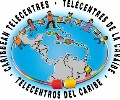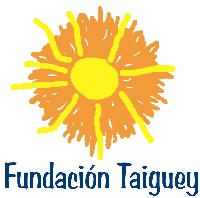Caribbean Community Telecenters
Regional Workshop
July 20-22, 2006
Santo Domingo - Dominican Republic
Summary
A 3 day workshop will gather around 30 practitioners of the Caribbean Telecenters, in Santo Domingo dates 20-22 July 206, with the objective to create a regional wide framework of exchange, learning and collective action, in order contribute to their strengthening as a tool for the human development of the rural and/or urban marginal communities.The workshop is organized by Fundación TAIGUEY, with the collaboration and support of Telecentres.org (an IDRC, SDC, and Microsoft joint venture), The Institute for Connectivity in the Americas (ICA), UNESCO Cluster Office for the Caribbean, the PNUD / UNDP (Community Resource and Internet Centers (CoRICs) Programme, the INDOTEL (Gov. of the Dominican Republic), the Community Technology Centers programme of the Dominican Rep First Lady Office, and The CarISnet.org project consortia.
Telecentres
- In Wikipedia.org:
A telecentre is a public place where people can access computers, the Internet and other technologies that help them gather information and communicate with others at the same time as they develop digital skills. While each telecentre is different, the common focus is on the use of technologies to support community and social development — reducing isolation, bridging the digital divide, promoting health issues, creating economic opportunities, reaching out to youths. Telecentres exist in almost every country on the planet, although they sometimes go by different names (e.g. village knowledge centres, infocentres, community technology centres, community multimedia centres or schoolbased telecentres).
We also understand they are a facility for community (shared) access to ICTs and its services, enabling its potential uses for the human/social development of the communities Telecenters can be "owned" by community, government, private business or non for profit entity, but all must have a social/ mission/objective. Usually they are located in poor rural, or urban marginal areas were traditional private service operators do not feel that providing access to ICTs is profitable.
Caribbean countries and territories considered: Antigua, Barbados, Bahamas, Belize, Bermuda, British Virgin Islands, Cayman Islands, Cuba, Dominica, Dominican Republic, Jamaica, Haiti, Guadeloupe, Guyana, Guyane Française, Grenada, Martinique, Montserrat, Netherlands Antilles, Puerto Rico, Trinidad & Tobago, ST Vincent and the Grenadines, ST Lucia, Stt Kitts and Nevis, Suriname, USVI.

